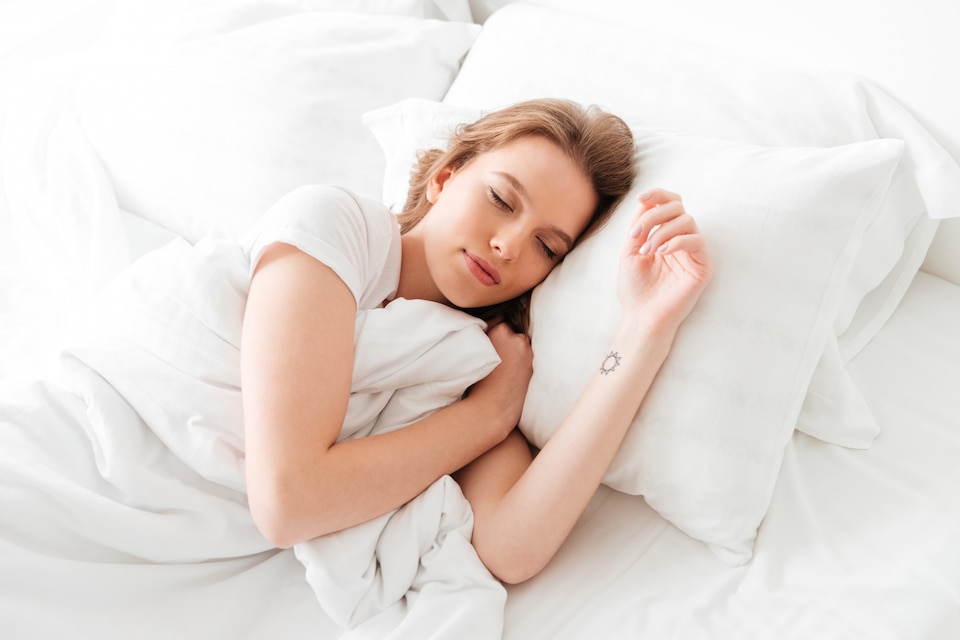Our quest for speedy weight reduction sometimes overlooks a critical ally: decent sleep. Rest and fitness, frequently forgotten in the rush for strenuous exercises and strict diets, are the keys to weight loss. This investigation explores unknown realms, showing how sleep goes beyond rejuvenation to become a powerful weight-reduction tool. Discover the fascinating science underlying how sleep quality affects our physical performance, hunger, hormones, and overall success in becoming healthier and fitter.
The Overlooked Player: Sleep In Weight Loss
Sleep arises when training is replaced by rest. Beyond rejuvenation, sleep affects weight control. Sleep length is linked to BMI and obesity in scientific studies. We must appreciate sleep’s importance in weight reduction.
1. Hormonal Balance
Sleep dominates the hormone dance of hunger and fullness. Healthy sleep balances ghrelin, the hunger hormone, with leptin, the satiety hormone. When rest fails, this hormonal dance makes hunger and food control worse. Explore the hormonal dance that shapes your diet.
2. Insulin Sensitivity
Sleep also affects insulin sensitivity, a key energy metabolism factor. Sleep deprivation alters glucose tolerance and insulin production, promoting fat accumulation and diabetes. Discover the complex link between sleep, insulin, and energy.
3. Physical Activity
Consider sleep the quiet builder of energy and exercise drive. Sleep deprivation fatigues and hinders activity. Discover how a good night’s sleep boosts energy, motivation, and calorie burn.
Lack Of Sleep And Hunger Hormones
A delicate dance between hunger hormones and lack of sleep affects our eating patterns. Sleep deprivation disrupts the delicate balance between ghrelin, the hunger hormone, and leptin, the satiety hormone. This disturbance increases ghrelin, which tells the brain to eat, and decreases leptin, which indicates satiety.
An increased appetite and a decreased capacity to stop eating. Beyond a growling stomach, it causes a demand for high-carb, high-calorie meals. Imagine late-night food cravings after a sleepless night—it’s hormonal and not willpower.
Lack of sleep might make you feel hungrier than you are, causing overeating and weight gain. Understanding this complex interaction emphasizes the need for excellent sleep. Doing so helps people balance their hunger and fullness signals, promoting mindful eating and well-being.
Sleep Deprivation And Physical Performance
Lack of sleep is a severe threat to your physical performance. In addition to weariness, sleep deprivation may impair cognitive function, healing, and physical performance.
1. Reduced Energy:
Sleep deprivation lowers energy. Running on an empty tank makes even basic physical chores difficult. Without enough rest, your body lacks the power to work, exercise, or do everyday tasks. After a night of troubled sleep, a high-intensity exercise seems like fighting an unseen force.
2. Decreased Motivation:
Sleep deprivation steals your desire to exercise. Mental tiredness from little sleep affects your attention and workout enthusiasm. This decreased desire might make it hard to stick to a workout regimen and reach your objectives.
3. Impaired Recovery:
Sleep is crucial to recovery, particularly for athletes. Your body produces growth hormones during deep sleep to repair and develop muscles after a hard exercise. Insufficient sleep delays muscle healing, exhausting them and hindering rebuilding. The result: slower growth, more injury risk, and decreased physical performance.
Remember that sleep is essential to any efficient training regimen. Your body rejuvenates during calm sleep, preparing you for the day’s physical tasks. Prioritize sleep as a must-have part of your exercise program and observe how it boosts energy, motivation, and performance.
Practices For Good Sleep Hygiene
Sleep hygiene may help you sleep well. Set a routine and relax to improve sleep patterns. Discover why optimal sleep requires limiting napping, careful eating, and relaxing.
1. Consistent Sleep Schedule:
Regular sleep is crucial for good sleep hygiene. Try to sleep and get up at the same time every day, including weekends. Regularity affects bodily rhythm, enhancing sleep. Consistency improves your circadian rhythm, making sleep and wakefulness easier.
2. Comfortable Sleep Environment:
For optimal sleep, keep your room dark, quiet, and calm. Block sounds using blackout curtains, earplugs, or a white noise machine. Make sure your mattress and pillows are comfortable to prevent insomnia. Restful sleep is promoted by a quiet atmosphere.
3. Limit Napping:
Short power naps are helpful, but prolonged or irregular daytime naps may impact nighttime sleep. Avoid late afternoon naps and sleep 20 minutes. It balances daytime alertness and nighttime fatigue.
4. Mindful Eating And Drinking:
Be mindful of bedtime consumption. Avoid coffee, alcohol, and heavy meals that might disrupt sleep. If you’re hungry before bed, eat lighter, digestible snacks. Mindful eating and drinking reduce digestion and stimulant interruptions, promoting tranquil sleep.
5. Physical Activity:
Regular exercise improves sleep. Exercise throughout the day to fall asleep quicker and more profoundly. Vigorous activity close to sleep may have the opposite impact. Allow your body to relax before bed for a better night’s sleep.
6. Relaxation Techniques:
Use relaxation methods before bed to tell your body to wind down. Reading, having a warm bath, listening to quiet music, or mindfulness meditation helps alleviate stress. A relaxing regimen means your body can sleep.
Identifying the ideal sleep hygiene techniques for each person takes trial and error. By doing these things every day, you’ll create a sleep-friendly atmosphere. Remember that excellent sleep hygiene is essential to health and well-being. Prioritize sleep and watch it become a great daily friend.
Conclusion
Quality sleep significantly affects weight reduction and well-being. Sleep is a quiet yet powerful health factor, from hormone regulation to physical performance. Regular sleep schedules, suitable sleep surroundings, and mindful activities help release rest’s transforming potential. Sleep hygiene may help people lose weight, gain energy, and perform better. Adopt the idea that excellent sleep is a requirement and watch it become a key to a healthier, happier existence. Sweet dreams and rejuvenation await.










